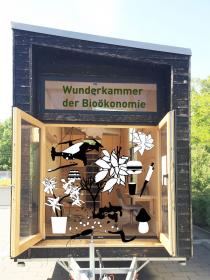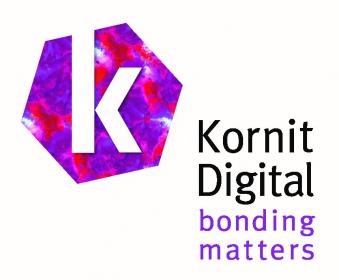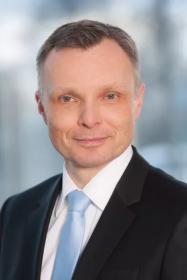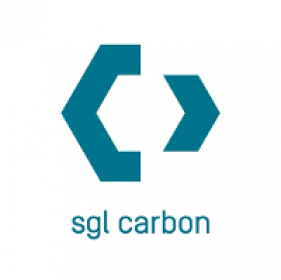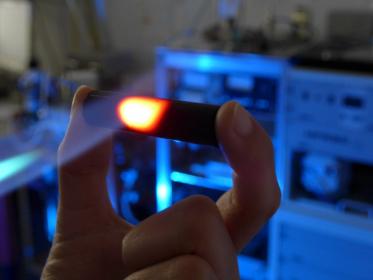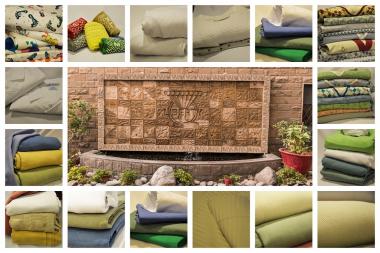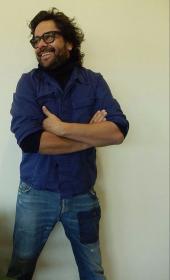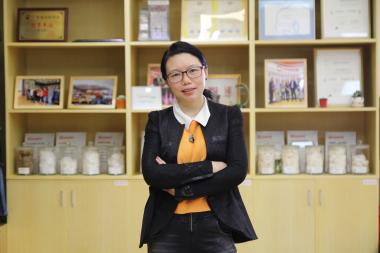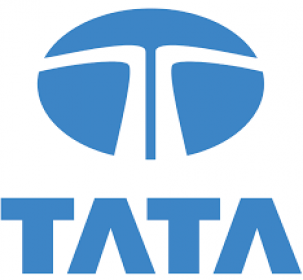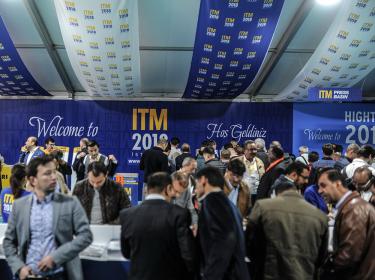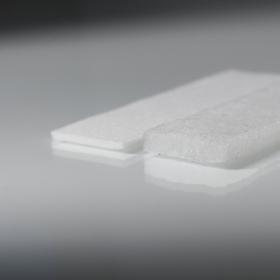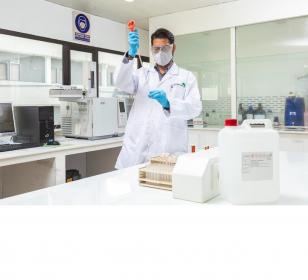Alten Bekannten auf der Spur: Tiny-House-Ausstellung startet Tour
- Die Tiny-House-Ausstellung »Wunderkammer der Bioökonomie« startet Ost-West-Tour im Wissenschaftsjahr.
- Besucher*innen lernen »Alte Bekannte« - vergessene Pflanzen - neu kennen.
In der interaktiven Ausstellung dreht sich alles um Pflanzen, Böden, Mikroben und Kulturen. Fraunhofer UMSICHT koordiniert das Projekt und entwickelte zusammen mit der Folkwang Universität der Künste die Workshops und Partizipationsformate. Ziel: Allen interessierten Menschen die vielseitigen Themen der Bioökonomie näherbringen und erlebbar machen.
Vom 26. bis zum 30. August 2020 startet die interaktiven Tiny-House-Ausstellung »Wunderkammer der Bioökonomie« ihre Deutschlandtour in Oppenheim (Rheinhessen). Mithilfe der »Alten Bekannte«, alltäglichen oder in Vergessenheit geratenen Dingen wie Sauerkraut, Wein oder Kompost, schlägt das im Wissenschaftsjahr 2020/21 geförderte Projekt eine Brücke zur Bioökonomie. Das komplexe Thema wird so anschaulich und in Workshops, Touren und Debatten erlebbar gemacht. Beim ersten Tourstopp stehen Pflanzen und deren Relevanz für die Bioökonomie im Mittelpunkt.
Seit jeher spielen Pflanzen für den Menschen eine besondere Rolle. Sie ernähren uns, versorgen uns mit Sauerstoff, wir bauen Möbel aus ihnen und verbrennen sie, um Wärme zu erzeugen. Pflanzen liefern uns Textilfasern und Biokunststoffe; sie sind für uns Stromquelle, Luftfilter und Schattenspender. Über Jahrtausende wurden diverse Pflanzen durch Zucht so verändert, dass wir sie vielfältig nutzen können. Doch der Klimawandel und der hohe Ressourcenverbrauch bringen neue Herausforderungen für die Pflanzenzucht mit sich. Können die »Alten Bekannten« einen Beitrag leisten, ihnen zu begegnen?
Alte und neue Pflanzenzuchtmethoden
Die »Wunderkammer der Bioökonomie« hält Antworten bereit und lässt Besucher*innen dabei selbst zu Entdecker*innen werden. In einem Workshop können mit altbekannten Methoden Zimmerpflanzen für zu Hause gezüchtet werden, die das Raumklima verbessern und anschließend auch mitgenommen werden dürfen. Expert*innen geben ihr Wissen über alte und neue Pflanzenzuchtmethoden weiter und debattieren anschließend mit dem Publikum, ob und wie diese zu einer nachhaltigen Gesellschaft beitragen können. Schließlich erwartet Interessierte eine Wanderung durch die Weinberge der Region Oppenheim, bei der sie erfahren, warum und wie Weinstöcke gezüchtet werden.
Nach dem einwöchigen Auftakt geht die Deutschlandtour des Projekts an drei weiteren Stationen weiter: Vom 22. bis zum 28. September dreht sich in Dresden alles um das Thema Boden, im Oktober werden in Thüringen Mikroorganismen unter die Lupe genommen und im November fragt die »Wunderkammer« in Dortmund, was Bioökonomie mit Kultur zu tun hat. Die Teilnahme an den Workshops ist kostenlos.
Wie können wir nachhaltiger leben, Ressourcen schonen und gleichzeitig unseren hohen Lebensstandard erhalten? Das Wissenschaftsjahr 2020|21 – Bioökonomie hält Antworten auf diese Frage bereit. Bürgerinnen und Bürger sind dazu eingeladen, im Dialog mit Wissenschaft und Forschung den Wandel hin zu nachhaltigen, biobasierten Produktions- und Konsumweisen zu diskutieren. In vielfältigen Formaten wird das Konzept der Bioökonomie mit all seinen Potenzialen und Herausforderungen erlebbar gemacht und aus unterschiedlichen Perspektiven beleuchtet. Die Wissenschaftsjahre sind eine Initiative des Bundesministeriums für Bildung und Forschung (BMBF) gemeinsam mit Wissenschaft im Dialog (WiD).
Fraunhofer-Institut für Umwelt-, Sicherheits- und
Energietechnik UMSICHT


